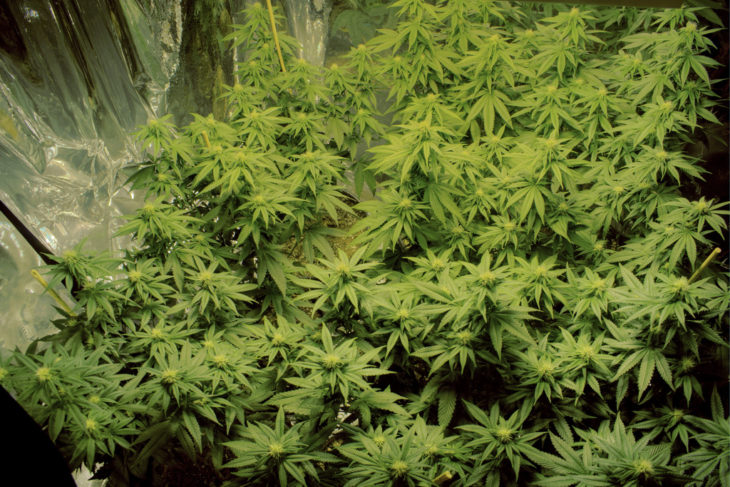On Nov. 8, Florida voters chose to legalize medical marijuana, following in the footsteps of California, Washington, Maine and even Alaska, where MMJ has been legal since 1998. In fact, medical marijuana has been legalized in 29 states, with the majority of MMJ laws passing in the past five years. Florida finds itself in the middle of legalization, but the heartening news for supporters is that the bill, known as Amendment 2, was passed with 71 percent of the votes, which, in political terms, is huge.
There’s still a ways to go, though, and it’ll be a while before patients in the Sunshine State are able to avail of legal medical marijuana. Although MMJ has technically been legal since January 2017 and around 200 doctors in Florida are legally qualified to prescribe it, it’s only available by presenting a government-issued ID card, which must be prescribed to patients by September 2017. That’s a long wait, and there are many potential legal challenges and appeals by opponents that can clog up the works in the meantime. The Florida legislature and Department of Health are still hammering out the exact rules and regulations regarding that will govern the industry, leaving patients in an uncomfortable gray area.
Fortunately, the precedent for full legalization is in place. In 2014, Florida legalized small quantities of low-strength MMJ for very specific severe illnesses and only after patients had been seeing their doctor for at least three months. So citizens can be hopeful that the full legalization will pass through without too much trouble, even if it takes a little while to roll out the plans. With 71 percent of the votes, there can be no doubt that the people of Florida have spoken. To go against that will would amount to political suicide, even for those staunchly opposed to MMJ legalization.
CA vs FL: Qualifying Conditions
When people think of MMJ laws, the first state that probably comes to mind is California. It was the first state to introduce MMJ laws, under the Compassionate Use Act of 1996, which means it’s been pioneering the legalization of the drug for an astonishing 21 years now.
There is a large range of traditional qualifying illnesses that enable a patient to avail of MMJ in California, including nausea, chronic pain and migraines, but there is also a clause that allows physicians who are licensed to practice in California to prescribe MMJ for debilitating illnesses at their own discretion. Subsequently, physicians have recommended medical marijuana for an even larger number of conditions, including as insomnia or depression.
This will likely not be the case in Florida, where physicians will be limited to what conditions for which they can prescribe MMJ. As it stands, only severely debilitating illnesses qualify a patient for MMJ.
CA vs FL: Possession Amounts
Another large point of contention for the new Florida law is possession amounts. California is very liberal with their possession laws. Under Proposition 215, patients are entitled to carry whatever amount of MMJ they deem necessary to treat their condition. This comes with a caveat, however; if a person is found to be carrying obviously excessive quantities of marijuana, they can be arrested or they can be fined for exceeding local MMJ laws.
Under the Medical Marijuana Regulation and Safety Act, which passed in January 2016, patients in California are permitted to grow their own MMJ in plots up to 100 square feet. This extends to 500 square feet for primary caregivers and/or physicians with fewer than five patients.
In Florida, however, the limits of possession have yet to be determined, but it is certain that patients will have to acquire their medicine through state-licensed dispensaries with home cultivation off the table. Florida wants to keep a keen eye on everyone involved with MMJ, at least at the beginning of its introduction.
By way of contrast, California doesn’t even require its patients to register for an ID card, making it very difficult for the government to keep tabs on everyone using MMJ. Opponents of MMJ in Florida point to California’s lax policies and subsequent experiences as negative and regard their liberal introduction of the MMJ laws as a testing ground for subsequent states.
Federal MMJ Laws vs State MMJ Laws
Under federal law, any kind of marijuana possession is a crime. This led to a confusing gray area in California, where no one was sure whose legal jurisdiction should be upheld. The compromise was reached in 2002 when it was decided that each county and city should decide on their own. The result of this is a confusing web of crisscrossing MMJ laws, leaving some areas of California inundated with dispensaries while others are almost completely MMJ-free.
Florida would do well to learn from California’s successes and mistakes when it comes to implementing its own MMJ laws, hopefully making the introduction of medical marijuana a triumph for both the people and the state as a whole.


